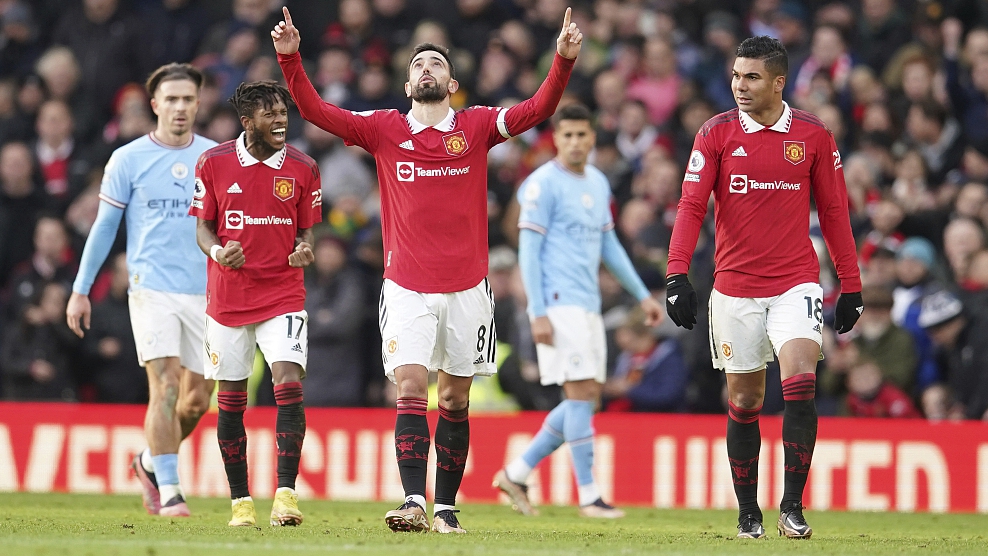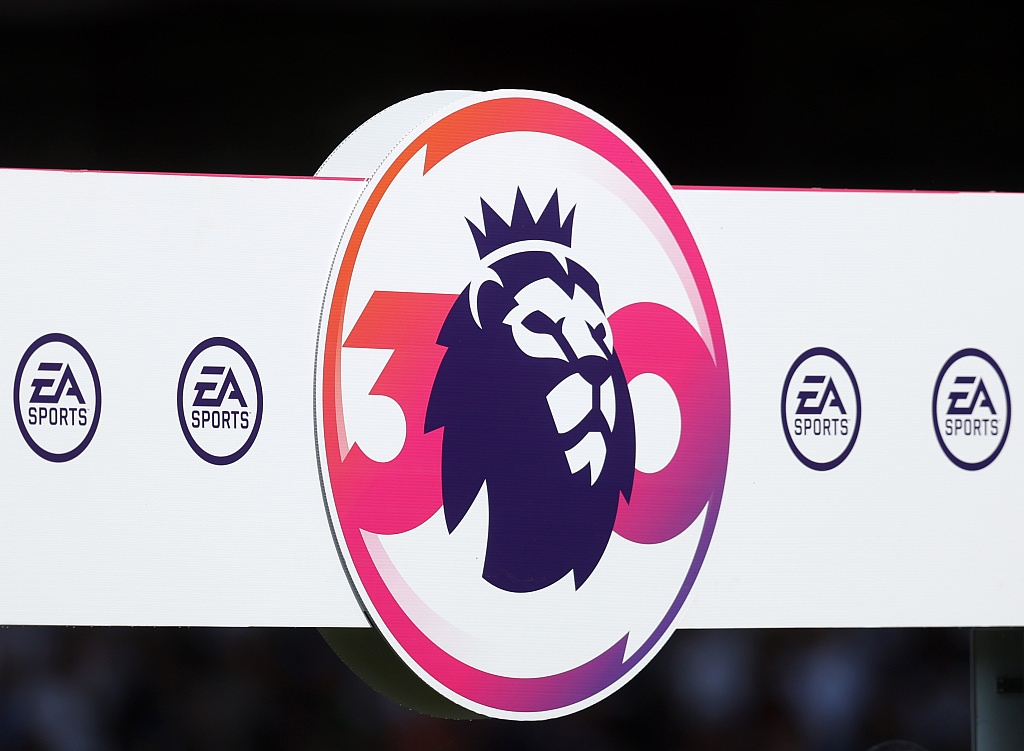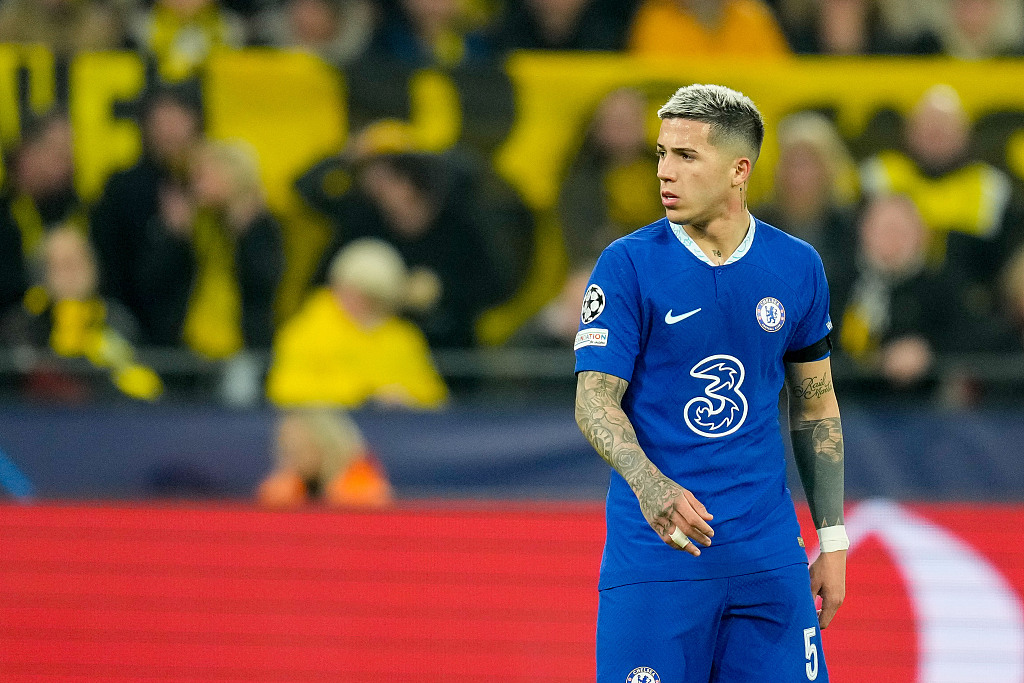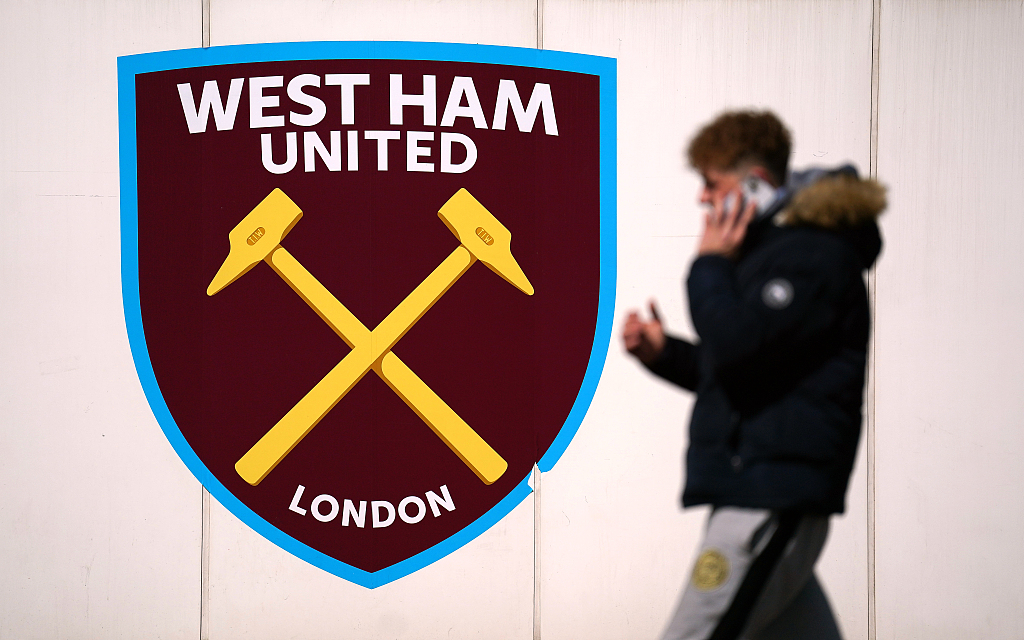
Manchester United's Bruno Fernandes (C) celebrates during their Premier League clash with arch-rivals Manchester City at Old Trafford in Manchester, England, January 14, 2023. /CFP
Manchester United's Bruno Fernandes (C) celebrates during their Premier League clash with arch-rivals Manchester City at Old Trafford in Manchester, England, January 14, 2023. /CFP
English football is bracing itself for a far-reaching overhaul as the UK government has released the long-awaited white paper on the game's governance in the wake of the bankruptcy of several historic clubs and the doomed European Super League project.
For the first time since football became the national pastime in England, there will be an independent regulator in place, and it will be "established in law to oversee the financial sustainability of the game and put fans back at the heart of how football is run," according to the policy document.
Among the regulator's powers will be the reinforcement of a new licensing system, which states that every club has to prove they have sound financial business models and good governance throughout before they are allowed to compete. The measure aims to prevent a repeat of "financial failings at Derby County, Bury and Macclesfield Town."

Detailed view of The Premier League logo ahead of the match between Nottingham Forest and West Ham United at City Ground in Nottingham, England, August 14, 2022. /CFP
Detailed view of The Premier League logo ahead of the match between Nottingham Forest and West Ham United at City Ground in Nottingham, England, August 14, 2022. /CFP
The regulator will also ensure "a fair distribution of money filtered down the English football pyramid from the Premier League" and "stop clubs participating in closed-shop breakaway competitions which harm the domestic game, such as the European Super League."
Fans will also have a larger say in the strategic running of their clubs, so as to stop owners from changing club's names, badges and colors of home shirts.
"The English game remains one of the UK's greatest cultural exports, with clubs and leagues around the world modelling themselves on its success," the Department of Digital, Culture, Media and Sport (DCMS) said in a statement.
"That is why the government is today taking the necessary and targeted steps to ensure that continues for generations."

The Premier League match ball during the match between Sheffield United and Wolverhampton Wanderers at Bramall Lane in Sheffield, England, July 8, 2020. /CFP
The Premier League match ball during the match between Sheffield United and Wolverhampton Wanderers at Bramall Lane in Sheffield, England, July 8, 2020. /CFP
While the white paper was welcomed by Football Association, whose chief executive Mark Bullingham underlined the recommendation to increase funding of the grassroots game as being "an important part of football's long-term future," there is understandable apprehension at the Premier League.
The English top flight, which features more than half of the world's top 20 richest clubs, fears that the introduction of independent regulator will impact future overseas investment into the league and force its moneyed powerhouses to curb their transfer spending.
In January, Premier League just smashed the record for a winter transfer window, splurging over £800 million ($964 million) in a spree that underscored the stunning financial gap between English football and the rest of Europe.

Chelsea set a British transfer record with the signing of Argentina's World Cup winner Enzo Fernández from Benfica in the winter transfer window. /CFP
Chelsea set a British transfer record with the signing of Argentina's World Cup winner Enzo Fernández from Benfica in the winter transfer window. /CFP
Later in the day, the Premier League announced in a statement that it appreciated the government's "commitment" to protecting the league's success, but warned that "it is vital regulation does not damage the game or its ability to attract investment and grow interest."
It added that the league would work "constructively" with stakeholders to ensure the regular "does not lead to any unintended consequences that could affect the Premier League's position as the most-watched football league in the world".
The misgiving about the regulator was echoed by West Ham United's principal owner David Sullivan. "It's a terrible idea. The government are terrible at running everything. Look at the mess the country's in," he was quoted as saying by the Sky Sports.
"We pay the highest taxes for the worst service from the worst government I've seen in my life. The regulator will have a huge staff that football will have to pay for. It will be a total waste of money."

A fan passes a West Ham United club crest outside the ground before a Premier League match at the London Stadium, London, England, April 3, 2022. /CFP
A fan passes a West Ham United club crest outside the ground before a Premier League match at the London Stadium, London, England, April 3, 2022. /CFP
The government, meanwhile, insisted it intends to "protect the rich heritage and traditions of our much-loved clubs and safeguard the beautiful game for future generations."
"The Premier League remains the envy of club competitions around the world and the government remains fully behind its continued success," said the DCMS.
"But in order to secure the financial sustainability of clubs at all levels, a solution led by those running the leagues and their clubs is needed, and remains the government's preferred outcome."